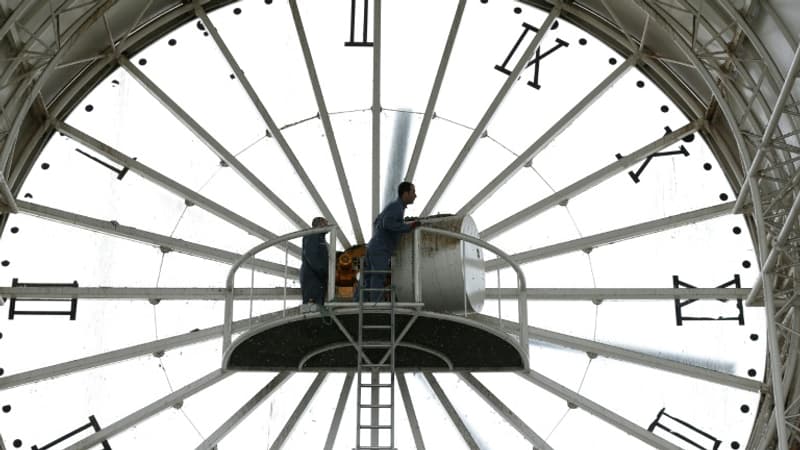Will the second of the calendar disappear? The elimination, or not, of this additional second was part of the discussions at the General Conference on Weights and Measures that was held this week in Paris, because its addition “creates discontinuities that risk causing serious failures in essential digital infrastructures. “.
Before we continue, we must first remember what a leap second is: it is an extra second that is added when clocks are no longer in phase with astronomical time, because the Earth’s rotation around the sun is irregular.
“This additional second, or ‘leap’ second as it is called, makes it possible to connect the irregular ‘astronomical’ time linked to the Earth’s rotation, with the extremely stable legal time scale defined since 1967 by atomic clocks”, explains the Paris Observatory.
The difference between coordinated universal time and astronomical time
It is in France where this addition of a second was decided, because “it is a component of the International Service for Earth Rotation and Reference Systems, located at the Paris Observatory” which measures “variations in the orientation of the Earth and which is therefore responsible for predicting and announcing these leap seconds”, specifies the Paris Observatory.
“Every time the difference between Coordinated Universal Time and astronomical time exceeds 0.9 seconds, the difference is corrected with a leap second,” summarizes the Swiss Federal Institute of Meteorology.
Since 1972, 27 times per second have been added to our clocks, the night of June 30 to July 1, or December 31 to January 1. The last addition of a second secular was made on the night of December 31, 2016 to January 1, 2017.
“On January 1, 2017, at 1 a.m. (French time), clocks will have to go back one second,” the Paris Observatory wrote at the time. “Very exceptionally, the minute between 0:59 and 1:00 will last one second longer than normal, i.e. 61 seconds instead of 60.”
However, leap seconds could no longer be added in the future, but removed. “Recent observations of the rate of Earth’s rotation indicate that it may be necessary to introduce a negative leap second for the first time, which has never been considered or tested,” explained in resolutions of the General Conference on Weights and Measures this Friday.
Why bother these seconds?
The maintenance of this leap second is “today discussed”, the Paris Observatory explained in 2012. “They can in principle cause synchronization problems in certain systems. Therefore, efforts have been made for a long time to eliminate them,” the Swiss Federal Institute of Metrology wrote the same year.
In fact, the introduction of leap seconds creates “discontinuities that risk causing serious failures of essential digital infrastructures, such as global navigation satellite systems (GNSS), telecommunication systems and data transmission systems.” energy”, we can still read in the latest resolutions of the General Conference on Weights and measures.
In fact, in 2012 and 2017 several digital problems had been reported, after the incorporation of this second. BuzzFeed thus reported in 2012 how sites like Reddit, Foursquare, Yelp or LinkedIn had collapsed after the introduction of this second.
If this second is removed in the future, “besides a gap of one hour after 500 years, the most spectacular consequence of its removal would be, for the first time in human history, to completely decouple time from the celestial.” movements”, the Paris Observatory recalled in 2012.
Source: BFM TV


